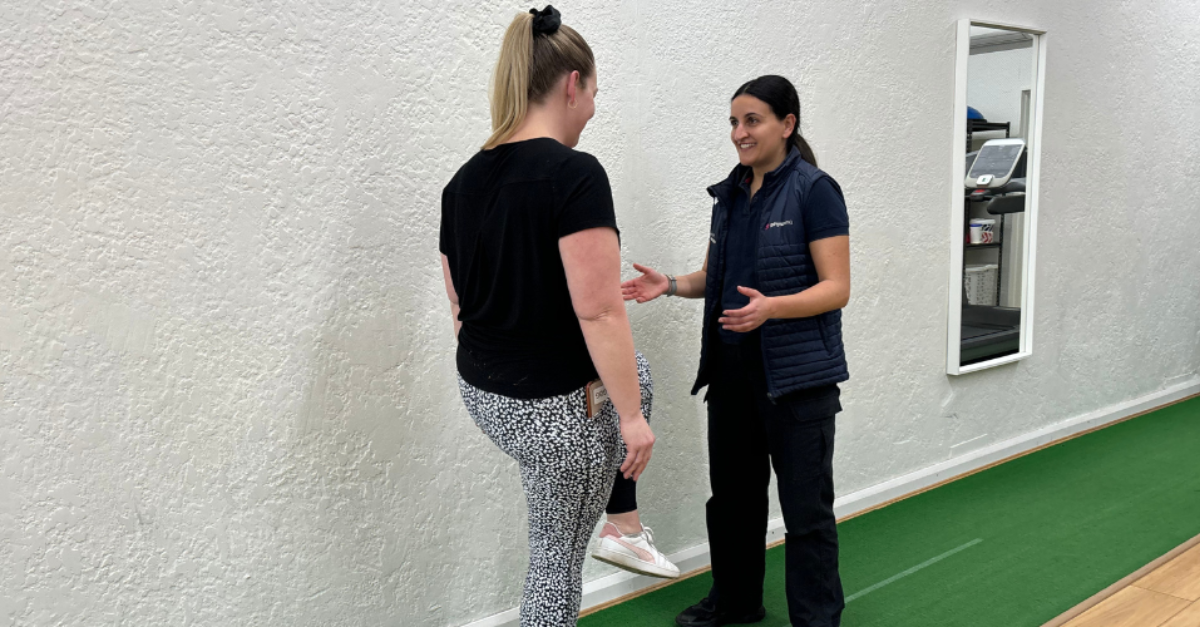Understanding Vertigo and Dizziness
Tuesday, July 30, 2024
Dizziness and balance related problems are some of the most commonly reported symptoms to our Physiotherapy clinic and can be caused by a variety of different conditions. Let’s look at what we mean by vertigo and dizziness, what impacts our sense of balance, how to look behind symptoms for a cause and diagnosis, and how to treat these conditions.
How common are dizziness and balance problems?
Our sense of balance and coordination is influenced mainly by the following systems:
- Vestibular: Balance organs in your inner ear pass information to your brain about head position and movement
- Proprioceptive: Joint receptors, muscle spindles and sensory organs throughout your body give the brain information about the orientation of your body
- Vision: Your eyes receive information regarding the environment and where vertical and horizontal are.
- Brain: Your brain has the extremely complicated job of taking all of the information from our vestibular, proprioceptive and visual systems and make sense of it all to allow us to go though life!
A problem with our vestibular system will directly affect our ability to live a normal life and complete day-to-day tasks. Understanding the underlying causes, symptoms, and treatment options is crucial for managing conditions affecting the vestibular system.
What is Vertigo?
Vertigo is a specific type of dizziness characterized by a false sense of movement or spinning. It often feels like you or your surroundings are moving when there is no actual movement. Vertigo is typically a symptom of an underlying issue rather than a condition itself.Common Causes of Vertigo:
- Benign Paroxysmal Positional Vertigo (BPPV): BPPV is caused by small crystals of calcium carbonate that become dislodged in the inner ear. These crystals interfere with the normal movement of fluid in the ear, sending incorrect signals to the brain about your body's position.
- Meniere's Disease: This inner ear disorder involves abnormal fluid buildup, causing vertigo, tinnitus (ringing in the ears), hearing loss, and a feeling of fullness in the ear.
- Vestibular Neuritis: An inflammation of the vestibular nerve, usually due to a viral infection, leading to severe vertigo, balance issues, and nausea.
- Migraine-Associated Vertigo: Migraines can cause episodes of vertigo, which may or may not be accompanied by headache.

What is Dizziness?
Dizziness is a broader term that describes various sensations such as feeling faint, lightheaded, weak, or unsteady. Unlike vertigo, dizziness does not involve a sense of spinning.Common Causes of Dizziness:
- Dehydration: Not drinking enough fluids can lead to low blood pressure and dizziness.
- Low Blood Sugar: Skipping meals or experiencing a drop in blood sugar can cause dizziness.
- Medication Side Effects: Some medications can have dizziness as a side effect.
- Anaemia: Low iron levels can lead to insufficient oxygen reaching the brain, causing dizziness.
- Heart Conditions: Issues like arrhythmia or heart attack can result in dizziness due to reduced blood flow to the brain.
Symptoms of Vertigo and Dizziness
The following signs and symptoms can present while sitting still, in specific positions or with movement.- Spinning sensation
- Nausea or vomiting
- Imbalance
- Nystagmus (involuntary eye movements)
- Sweating
- Light-headedness
- Fainting
- Unsteadiness
- Blurred vision
- Confusion
- Tinnitus
- Feeling drunk, rocky or woozy
- Anxious
- Weakness and fatigue
It is important to know that signs and/or symptoms are not a diagnosis and it is important to have a thorough assessment to determine and treat the underlying cause.
Diagnosis and Treatment
Diagnosing the cause of vertigo and dizziness involves a thorough medical history, physical examination, and specific tests. At Physio Inq Sutherland we use bedside testing to diagnose and treat vestibular disorders in an evidence-based framework. This allows us to determine the underlying cause of your symptoms, help you to understand your condition and create a personalised treatment plan that helps you move forward! If you are having any of the signs or symptoms listed above contact us and book an appointment today!

